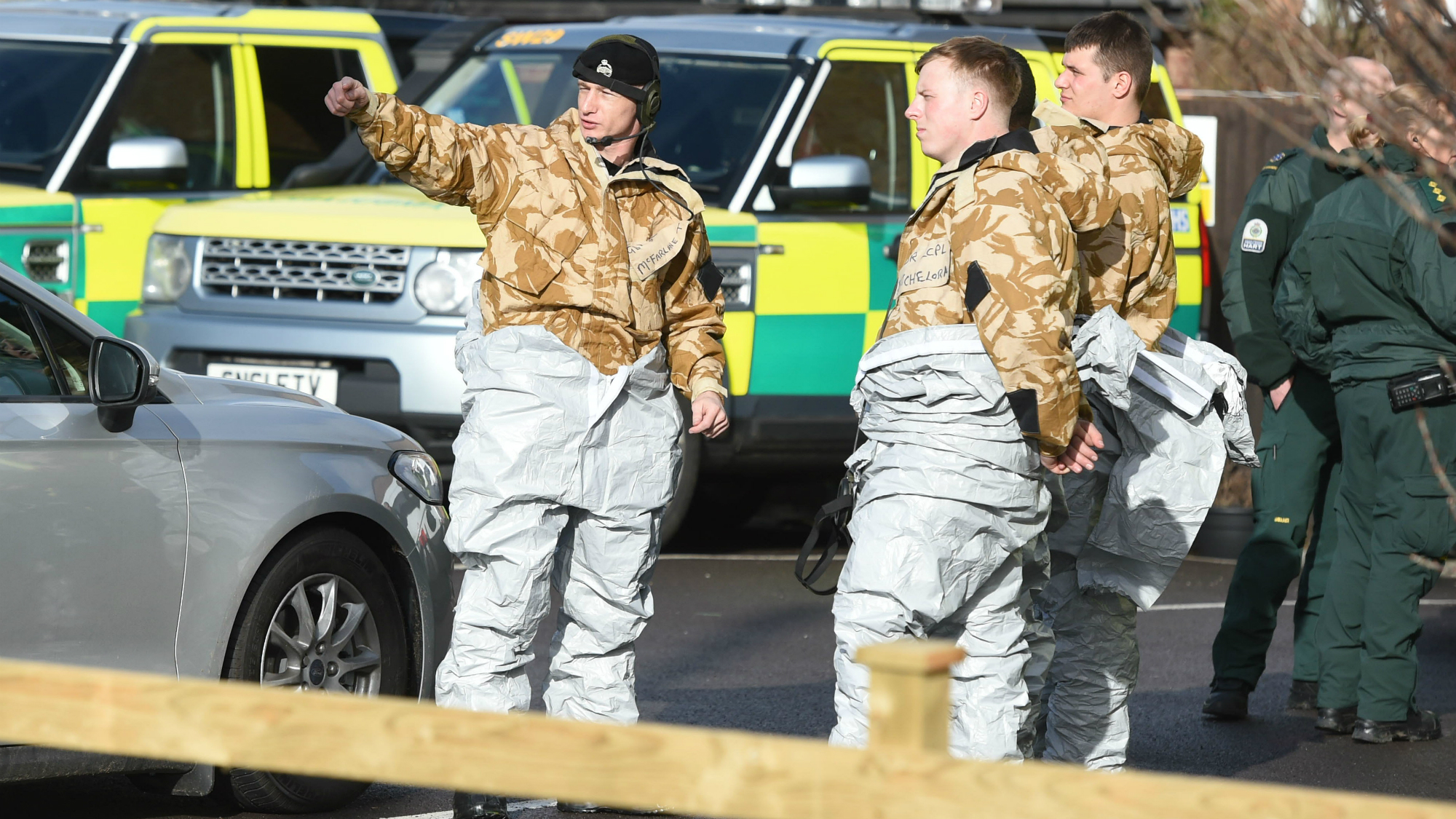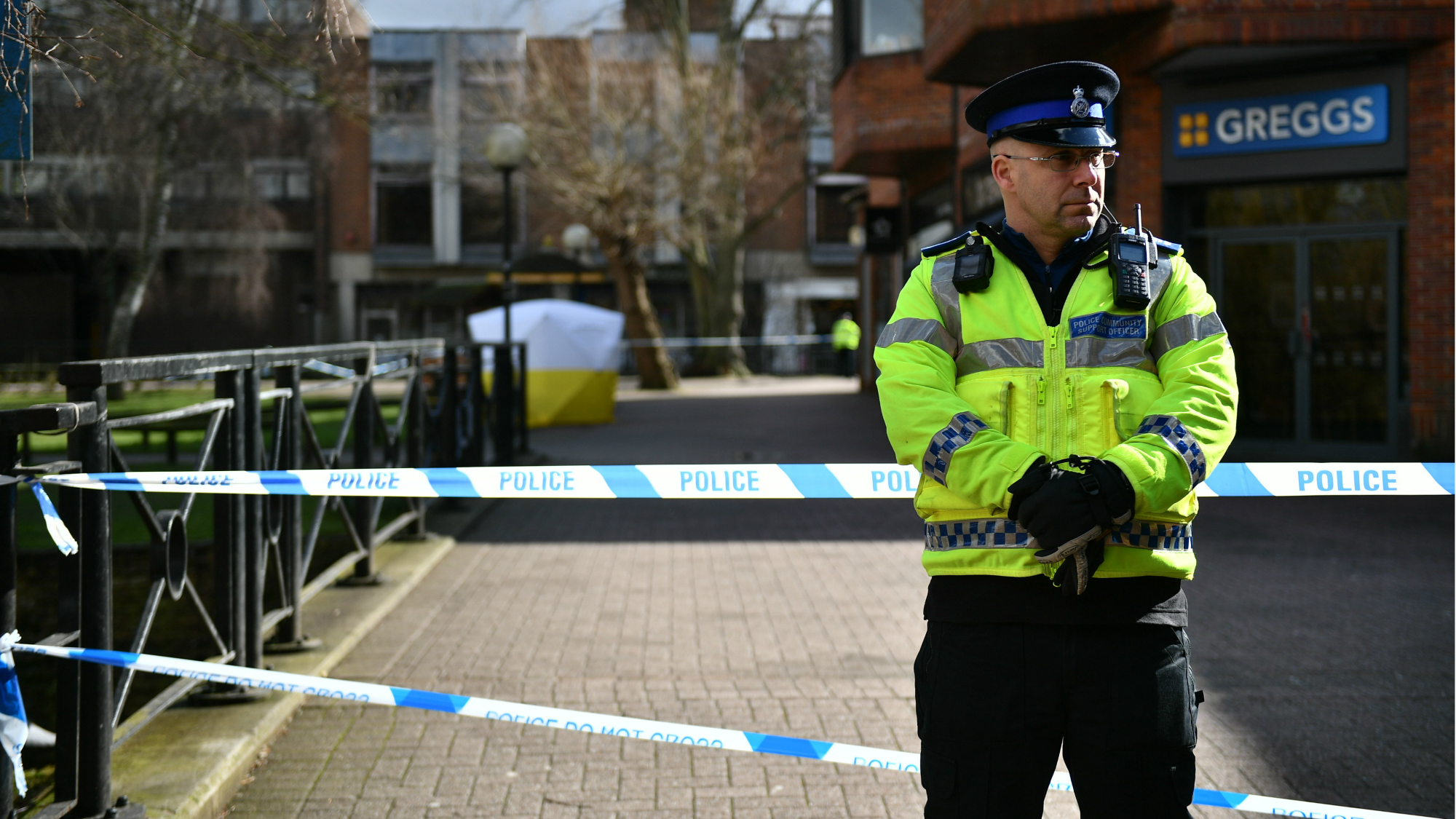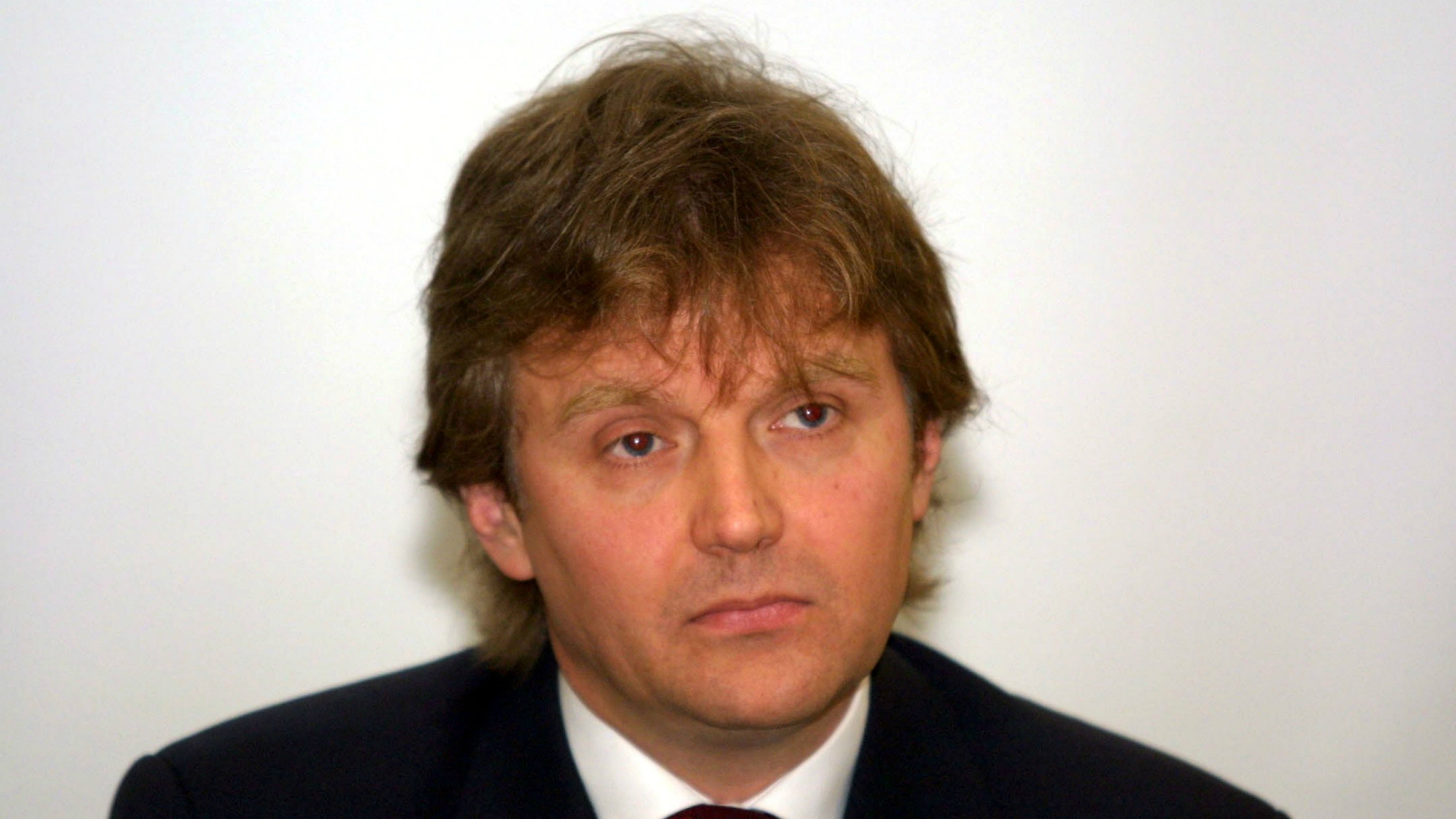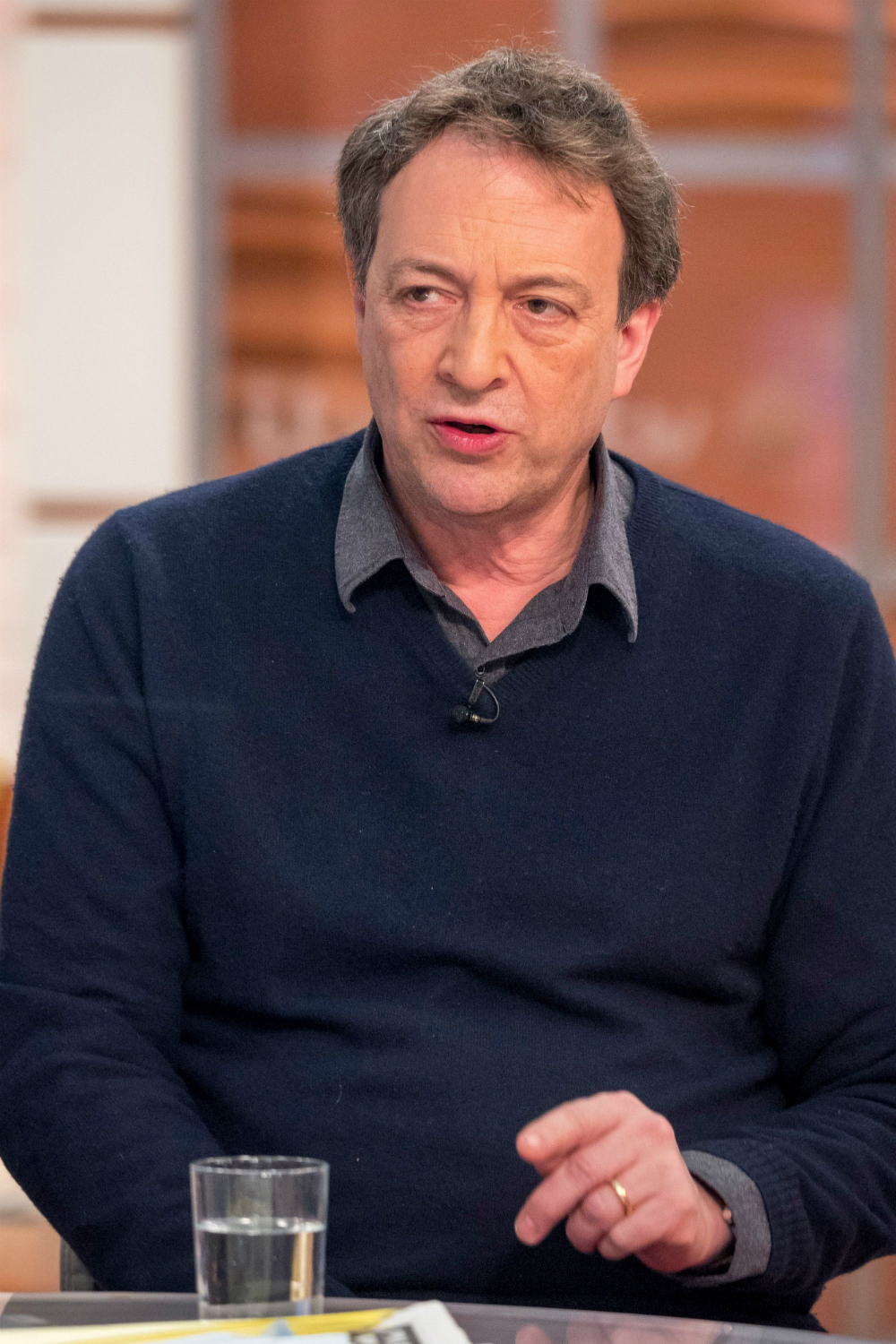The Salisbury nerve agent attack - everything you need to know
Who are Sergei and Yulia Skripal? What really happened in the Salisbury nerve agent attack, and who is telling the truth?

Celebrity news, beauty, fashion advice, and fascinating features, delivered straight to your inbox!
You are now subscribed
Your newsletter sign-up was successful
Who are Sergei and Yulia Skripal? What really happened in the Salisbury nerve agent attack, and who is telling the truth?
When reports first emerged of an assassination attempt on 66-year-old Sergei Skripal and his 33-year-old daughter, Yulia, in the Salisbury nerve agent attack in Salisbury on 4 March, they were met with a degree of disbelief. Who would have thought a scene that could have been plucked straight from a TV show like McMafia would be playing out in the middle of a city ordinarily known for its charming cathedral, and nearby Stonehenge? But amidst the disbelief there was also a sense of déjà vu. After all, this was not the first time a former Russian agent had been targeted on British soil. As officials in boiler suits roamed the area just a stone’s throw from a playground in the grounds of the shopping centre where the now-critically ill father and daughter were found unconscious on a bench, ten days ago, some were reminded of the scenes following the poisoning of former FSB Alexander Litvinenko at an Itsu restaurant in London’s Piccadilly, in 2006. In recent day, tensions have escalated between Britain and Russia with accusations being made on both sides, while concerns grew over the ongoing impact of the nerve gas attack on local residents and visitors who might have inadvertently been exposed. Today, the situation reached fever pitch when PM Theresa May made a statement saying Russia was "highly likely" to be responsible for not just an attack on the Skripals, but of an "indiscriminate and reckless act against the United Kingdom". Since then, it has been announced that the Skripals were poisoned by a chemical that is part of a group of nerve agents known as Novichok, which was developed by the Soviet Union in the 1970s and 1980s. The British Prime Minister gave Russia until midnight on Wednesday to respond to the claims, but the deadline went unmet. Russia is now demanding a sample of the nerve gas, and is refusing to cooperate with the UK inquiry. Detective Sargeant Nick Bailey, the policeman who fell ill while responding to incident, is in a serious but stable condition. So what really happened, and who is telling the truth? Here is what we know so far, and what we don’t.
Who were Sergei and Yulia Skripal?
Sergei Skripal is a former Russian agent who was convicted, and later pardoned, for passing the identities of Russian secret agents in Europe to the UK's Secret Intelligence Service (MI6). Colonel Skripal, who has lived in Salisbury with his family since being given refuge in Britain, was one of four prisoners Moscow swapped for spies in the US in 2010. Since settling in the city, Col. Skripal is said to have appeared to be leading a relaxed and quiet life though he went on frequent business trips, telling friends he was working mainly in cyber-security. He last rang his mother, who was very ill, two weeks before the attack. His family continue to deny he was an agent of MI6, insisting he was patriotic and that the case against him had been deliberately fabricated.
Irina Petrova, known as Yulia, was just 15 when her father retired and went to work in the foreign ministry in Moscow. Born in 1984, she was fluent in English, Russian and Spanish, and worked at Moscow’s Nike branch after graduating from Russian State University, where she studied Geography. She grew up with her older brother and parents in a flat in the Krylatskoye district of Moscow. In December 2004, Yulia’s father was arrested, accused of spying for Britain, and sentenced to 13 years in jail before being sent to a penal colony in Mordovia, more than 300 miles south-east of Moscow. Having followed her father to England, Yulia worked for a while Holiday Inn in Southampton, and was seemingly settled into her life in England, posting beatific photos on her Facebook page taken in the family garden. But in reality it was not all smiles. In 2012, Yulia’s mother, Lyudmila, died of cancer, in the UK. Then last year her older brother, Alexander, died of liver failure at the age of 43, while on holiday in St Petersburg, in circumstances reported at the time by the BBC as suspicious. He was buried in Salisbury, near his mother.
What happened?
On Sunday 4 March, Sergei Skripal and his daughter Yulia were out and about in the city of Salisbury, arriving in the city centre around 1.30pm. At 2.30pm, the pair went to Zizzi restaurant for lunch before heading to the nearby Mill pub. They were found unconscious on a bench next to Avon playground. At 4.15pm, a member of the public called 999. Police and paramedics arrived and worked on the couple at the scene.

At 5.11pm, Yulia was airlifted to hospital while Sergei was taken there by road. At 8.20pm, officers in protective suits examined the area. CCTV near the scene captured two people police are keen to speak to. At 4.03pm, the same CCTV camera captured Sergei behaving strangely and Yulia passed out on a bench. Sergeant Nick Bailey, the policeman who fell ill while responding to incident, is in a serious but stable condition. Police said 21 people had been seen for medical treatment since the incident. The Skripals were poisoned by a chemical that is part of a group of nerve agents known as Novichok, which was developed by the Soviet Union in the 1970s and 1980s. Russia is demanding a sample of the nerve gas.
Who did it?
Until May's tough statement this afternoon declaring the Russian government likely to have been responsible for the attack, the British government was taking a more pragmatic stance. Last week, Home Secretary Amber Rudd chaired a meeting of the emergency Cobra committee into how the investigation into the attack on Skripal and his daughter, Yulia, was progressing, and warned authorities to keep “a cool head”. The committee heard that 250 counter-terrorism police have identified more than 240 witnesses and are looking at more than 200 pieces of evidence. The same day, the Russian embassy tweeted: “What a coincidence! Both Litvinenko and Skripal worked for MI6. Berezovsky and Perepilichny were linked to UK special services. Investigation details classified on grounds of national security.” Speaking less delicately, Foreign Secretary Boris Johnson said on Tuesday that it looked as if the incident was “another crime in the litany of crimes that we can lay at Russia’s door”.
Celebrity news, beauty, fashion advice, and fascinating features, delivered straight to your inbox!

Bill Browder, a well-known critic of Vladimir Putin’s government, told HuffPost UK: “The first theory I would investigate would be that he was the victim of a Kremlin-sponsored assassination and I would run with that theory until it was proven otherwise.” He is not the only one claiming this case has one clear suspect. Yuri Felshtinsky co-authored a 2001 book with Litvinenko, the former Russian agent who was famously poisoned in London in a plot which an official inquiry later concluded had probably been authorised by Putin. He said: “Poisoning is the method of choice for the FSB. In the context of the Russian presidential election this has all hallmarks of a Putin assassination. He is warning anyone in the FSB never to defect as they’ll be hunted down and killed… As in this case Sergei Skripal was a colonel in the FSB like Alexander Litvinenko. The FSB always kills defectors as a loyalty warning to its agents.” But these claims are strenuously denied by Moscow officials who suggest that attempts to link the Skripals’ attempted murder to Kremlin hitmen are part of a campaign by the UK to demonise Russia. “This is pure propaganda, and the pure whipping-up of hysterical outbursts and hysteria,” said the foreign minister, Sergei Lavrov. And they are not the only ones who are raising their doubts…
Honour among thieves
Meanwhile, writing for The Spectator, Misha Glenny, the former adviser to the Russian government and author of McMafia, suggested the Skripal case was unlikely to have been a hit by the Kremlin. “We think of spy swaps as being thoroughly and always unscrupulous, but there actually are rules of the road. There is a protocol between the two intelligence agencies, a sort of honour among thieves. That’s why it’s very odd to see somebody like Skripal, being targeted like this.

And until we have some forensic evidence – and proper circumstantial evidence – it’s premature to accuse the Russian government of having been involved.” Rather, he suggested a third possibility, not dissimilar to the themes explored in his book, which was recently adapted for a hit BBC show. “It does seem that Skripal was involved in something: likely to be something to do with his stock-in-trade – which is the exchange, the buying and selling of information. And when you do that, you sometimes work with unscrupulous economic actors, who may be on the dark side,” Glenny concluded.
An isolated case?
Sergei Skripal is not the first former Russian agent to die of poisoning on British soil. In 2006, Alexander Litvinenko - a former officer with Russia’s FSB security service -was poisoned with polonium at an Itsu sushi bar in Piccadilly, with an official report suggesting the assassination had been carried out by two Russian agents with a “strong possibility” that they were acting on behalf of the FSB. Boris Berezovsky, the exiled Russian oligarch and chief critic of Putin, was found hanged in 2013 at his home in Ascot, Berkshire. A coroner recorded an open verdict. Alexander Yurevich Perepilichny, the 43-year-old Russian businessman and whistleblower, died while jogging near London in 2012 after leaving Russia three years earlier.
As this complex case continues to unravel, one thing that is clear is that this story is far from over.
Words by Charlotte Philby
The leading destination for fashion, beauty, shopping and finger-on-the-pulse views on the latest issues. Marie Claire's travel content helps you delight in discovering new destinations around the globe, offering a unique – and sometimes unchartered – travel experience. From new hotel openings to the destinations tipped to take over our travel calendars, this iconic name has it covered.